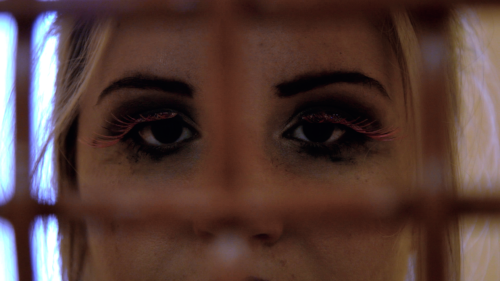REVIEW FOR “PIRATES AND MERMAIDS” The Stage August 2013
Theatre
Gerald Berkowitz Stage “Must See” Show
★★★★★
An Edinburgh garden stands in for New York's Central Park in this spellbinding tale devised by performer Jeremiah Reynolds and director Sandy Thomson.
Four times a day an audience numbering from two to ten is led to a couple of park benches, where a young man strikes up a conversation. He's a transplanted Scot – in his image, a pirate who sails the seas – who misses his girl back home, a mermaid content with her rock.
They Skype and email, but it's not enough, and he is so committed to his new world and she to her old one, with neither is ready to move, that he's tempted to break it off.
Quietly and conversationally, Jeremiah Reynolds draws us into this very real and human story with a performance of total and intimate authenticity, so that every plot twist – they do meet again, though not in ideal circumstances – has us at the edge of our benches, hoping for things to turn out all right.
Both writing and performance give the attractive impression of stream-of-consciousness spontaneity, though the skilful manner in which the appropriate and resonant Scots fable of the Selkie is woven into the narrative shows how expertly crafted it is.
REVIEW FOR “PIRATES AND MERMAIDS” Broadway Baby August 2015
Theatre
Caitlyn Hobbs, Broadway Baby
★★★★★
Poorboy Theatre’s latest offering, Pirates and Mermaids, is everything one hopes to find at the Fringe. The small audience is ushered up through the Scottish Storytelling Centre into a corridor and, in one breath, our usher switches into her character: an excitable New York tour guide. She shows us a video of the city that she’s made, on her iPad. We are told to leave our phones on so that we can join in with the show. From this point, we’re aware that this is going to be something special, something a little different.
We’re led into a waiting room for the City Hall, where we meet Cameron (Jeremiah Reynolds). Having already been encouraged to bond as an audience by the tour guide outside, we now sit in the waiting room, where the main body of the show takes place. At the City Hall, where New Yorkers go to register births, deaths and marriages, Cameron tells us about his move to New York – and the girlfriend, Eilidh, that he left behind in Scotland. Pirates and Mermaids is their story.
Pirates and Mermaids is just as much an experience as it is a tale of love, loss and technology. Reynolds uses some recognisable techniques from your average one-man show – creating other characters instantly through a change in accent and posture, for example – but director Sandy Thomson is one step ahead in her other innovative twists on the traditional monologue.
We’re invited to have a look through Cameron’s iPhone Camera Roll, at pictures of his girlfriend, his parents, his grandparents. He asks if anyone wants to share their own photos – one brave woman talks about her guinea pig as we pass around her Blackberry. Later, he plays us voicemails from his phone; he encourages us to write a postcard to someone we miss; he guesses what we want to be when we grow up.
Cameron’s story of love across different continents is compelling, and Reynolds’ performance is warm and without fault, but it’s the way the production is drawn together that makes Pirates and Mermaids memorable. It’s moving, but gives you plenty of room to think – unmissable.
REVIEW FOR “PIRATES AND MERMAIDS”
ScotsGay Magazine Mary Woodward Theatre
✭✭✭✭
Scottish Storytelling Centre
We are greeted by our guide to New York’s Central Park who takes us to a quiet part thereof, where we are encouraged to listen to the silence, breathe the fresh air, and take our seats on some nearby benches. There we meet a young man who is dressed in his best kilt suit and are drawn into the tale of Cameron and Eilidh, childhood sweethearts from a remote part of Scotland. Cameron explains that 25% of Scots are pirates – drawn to adventuring on the high seas/ around the world – and the other 75% are
mermaids, who don’t want to leave their rock, and spend their whole lives within a very small distance of their birthplace.
Cameron’s family moved to the States when he was eight, but come back to visit every summer, and every other Christmas. Slowly Cameron and Eilidh realise they are more than just Best Friends – but long-distance relationships are not easy. He shows us photos on his phone – his treasure box, which he’s never without – and describes the frustrations of communicating electronically [you can’t hug by Skype]. He brings members of both their families vividly to life, and we see his internal conflicts: what is his identity, where does he belong, how can he be ‘self’ when he is also part of Eilidh, how can they be together when each feels the tug of the life they currently live?
Jeremiah Reynolds holds us in the palm of his hand for the entire show, weaving together our own stories [childhood dreams and treasuries of pictures], his and Eilidh’s, and his gran’s bedtime story of a selkie [a seal woman who can assume human form and is torn between her love for her man and the pull of the sea from which she came]. His mastery of accents and character is outstanding, and his use of his phone to provide scenery and soundtrack for his tale is a stroke of genius.
The show is billed as ‘a fairytale for adults’: like all good fairy tales, it has a deeper meaning, and leaves us with much to ponder.
REVIEW FOR “PIRATES AND MERMAIDS”
Monday 5 August 2013 | By Amber-Page Moss threeweeks.com
ED2013 Theatre Review: Pirates And Mermaids (Poorboy) ✭✭✭✭
Intimate, honest and interactive, this one and a half hour monologue might make you forget you’re watching a play. Plus, the outdoor location provides a pleasant change to theatre studio darkness this summer. As the play tackles universal themes of home, love and family, you’re actively encouraged to reflect upon your own life, though, given its heart-warming and romantic nature, it’s probably only one for the theatrically sweet- toothed. Drawing upon traditional Scottish fairy tales, this piece of new writing includes technical touches that make it very much of its time. But the real credit goes to Jeremiah Reynolds’ charming, convincingly considered characterisation. Slips between accents only accentuate the theme of conflict. Beautifully believable, there was a genuine tear in my eye.








